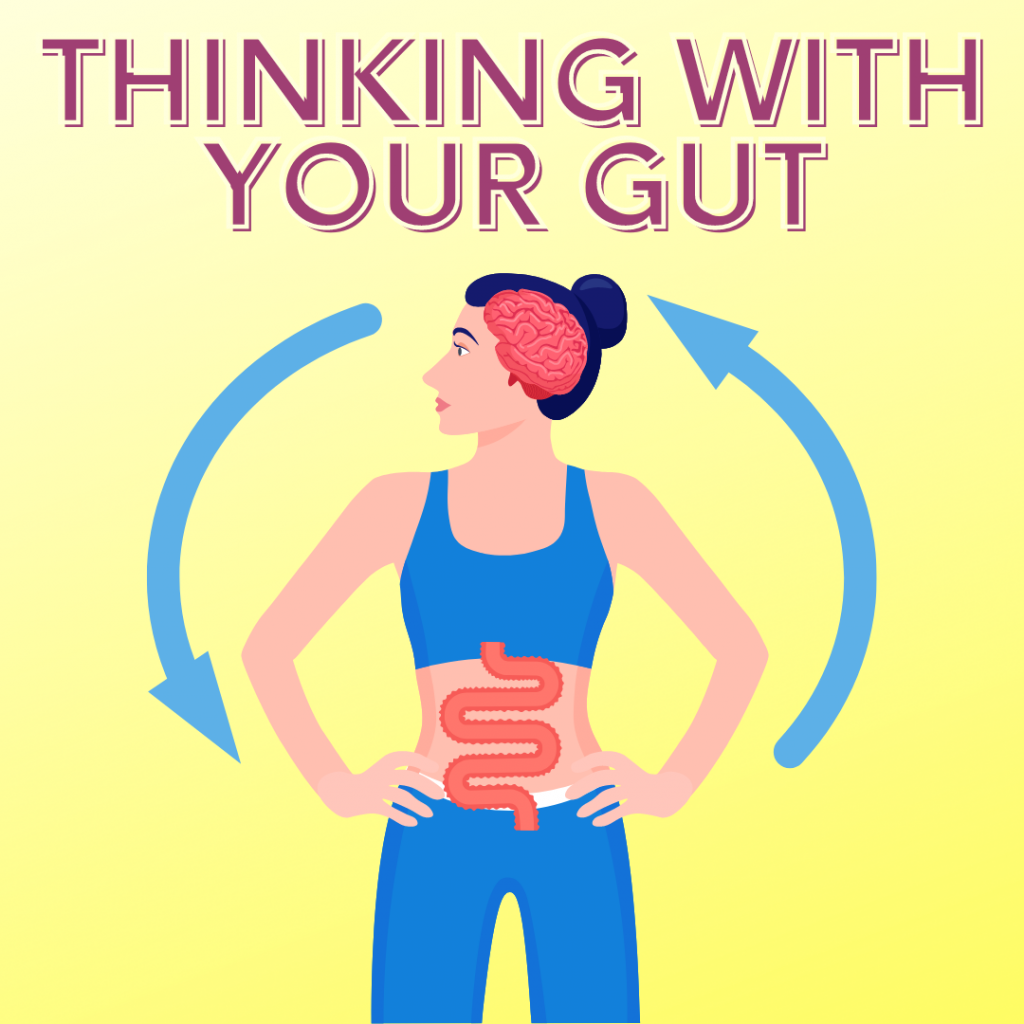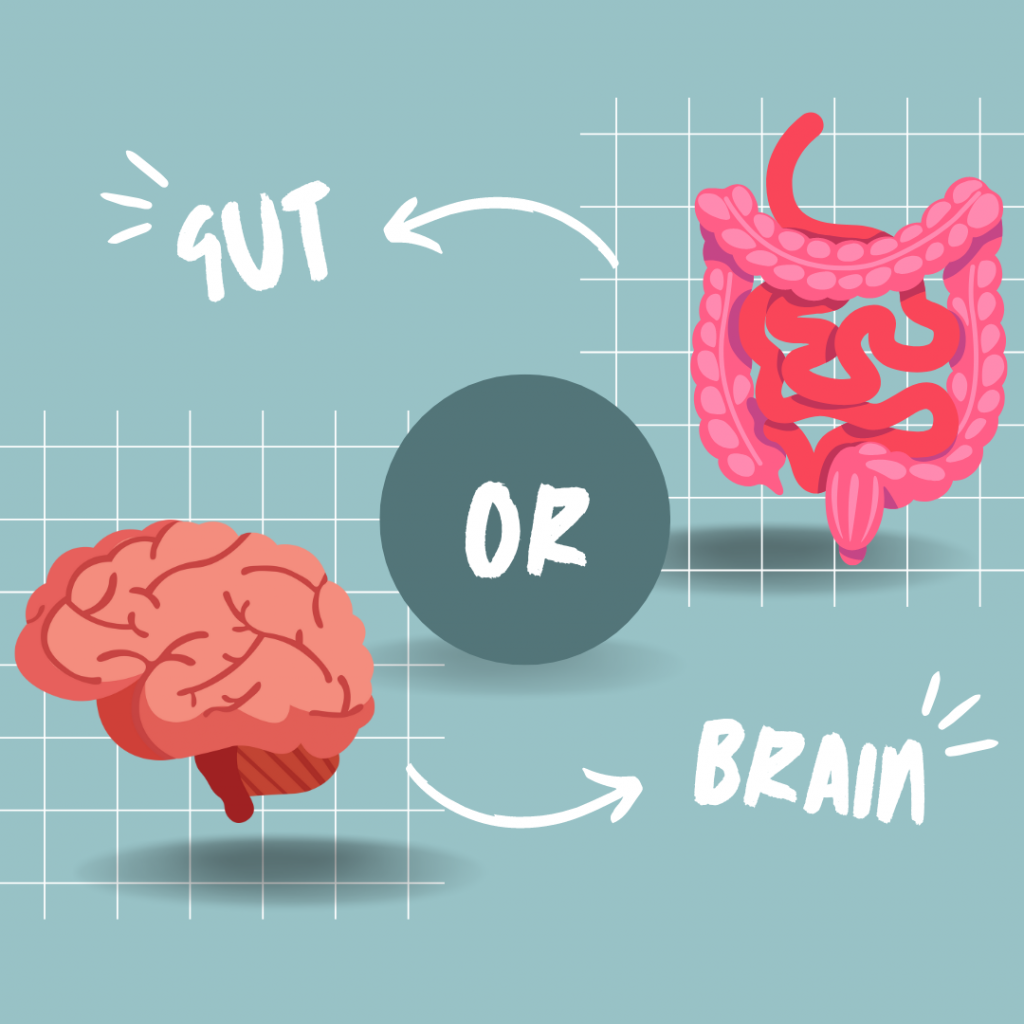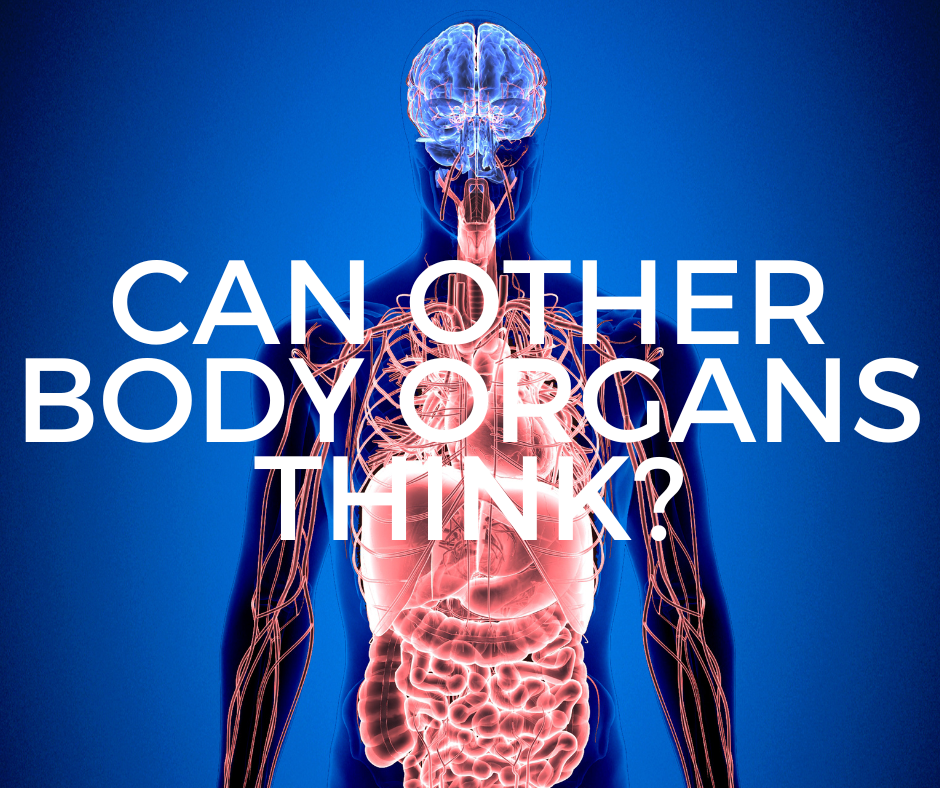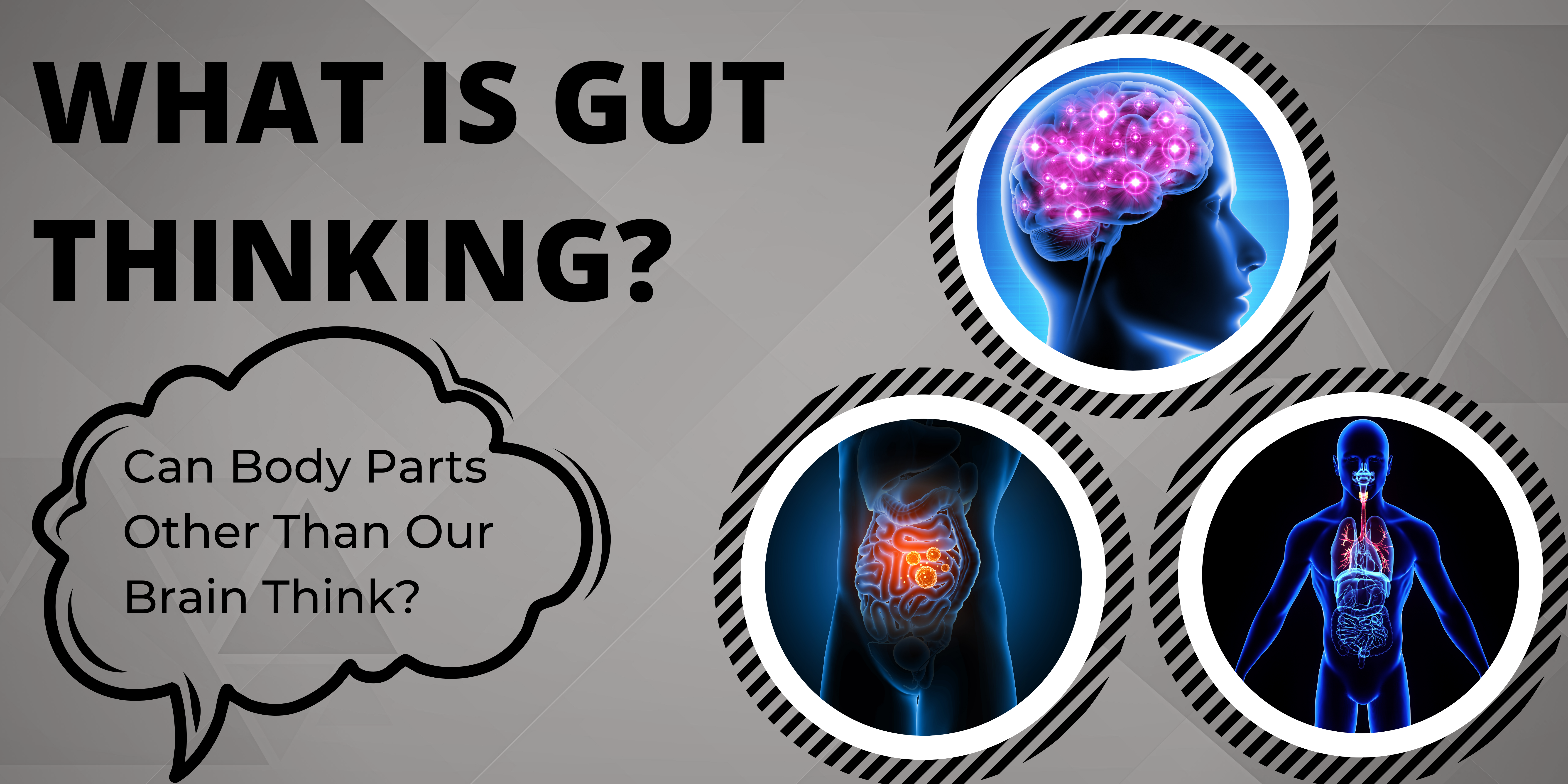Have you ever wondered what is gut thinking and whether body parts, other than our brain, can think? Stick with us and you’ll find out.
The human mind is a potent weapon.
The reason why we’re referring to the human mind as a weapon is that it has the power to shape our behaviors, for the better or worse.
Our mind serves as a defense mechanism and aids our thought process in an intriguingly unique manner.
The way our brain extracts information and creates abstracts against sensory or general cues is amazing.
However, today, our topic of discussion is not how our brain or thought process works, it is an extension of our mind, presented to us in the form of Gut Thinking.
What is Gut Thinking?

Have you ever encountered a sensation where you’d feel the urge or tendency to act spontaneously or immediately in a certain situation or person? Do you get instant, pop-up thoughts about a person that you’ve just met or when you’ve witnessed an uneasy situation? Thoughts like these are instigated through what is called gut thinking.
As stated in the article ‘Thinking from the Gut,’ by Charles Schmidt, the notion that our gut governs our state of mind dates back more than 100 years. The article also talks about the belief of scientists on gut thinking in the 19th and 20th centuries, on how the gut thinking process is activated, in connection to our brain.
They believed that gut thinking is a state of ‘auto-intoxication,’ because of accumulating wastes in the colon, which emanate poisons that cause infections and may be linked with mental health disorders, such as anxiety and depression.
However, if we were to explain gut thinking in simpler terms, it simply resonates with intuition, resulting in an immediate physical response that you feel or encounter against situations with multiple choices. A gut feeling, hence, would prompt you into thinking about what could be the best possible decision.
Some of the common sensations related to gut thinking include:
- Increased heart rate or palpitations
- Sweaty palms
- Feeling that you’re sinking
- Funny and unexplainable feeling in the stomach
- Muscle tension or tightness
- Tightening feeling around the neck
- Getting goosebumps
- Sudden flash or feeling of calmness and clarity
The gut feeling usually arises when you face a situation that involves taking an immediate decision. This is where your gut would trigger an immediate response. This response is popularized as gut instincts.
You must’ve come across the phrase ‘do what your gut tells you to do.’ Well, this is exactly that.
Modern-day science refers to gut feelings coming from the enteric nervous system. Our enteric nervous system is situated in our gastrointestinal tract, just like a web or spiral of neurons. Many neuroscientists consider the enteric nervous system or simply put, the gut, as our second brain.
Are Gut Instincts Trustworthy: Shedding Some Light
While there are many scientific deductions related to gut thinking, diving deeper into the medical aspect of how gut thinking works, this article will not bore you with the details that might be held better and closely with subject matter experts, instead, we’ll try to simplify things for you, helping you get a general understanding about gut thinking.
However, if you do wish to dive deeper into the subject of the gut-brain connection, then we recommend you watch this video. This would help you develop a detailed, scientific understanding of the connection between our brain and gut.
One of the biggest questions that might come to your head about gut instincts or gut thinking is whether you should completely trust them. At least, we’re taught or influenced by the general masses to follow our gut.
Before we get into whether you should trust your gut thoughts or not, let’s shed some light on how gut thinking feels like.
Illogical Uneasiness
The first thinking that you’ll start to notice when your gut thinking starts kicking in, is feeling uneasy. You won’t be able to comprehend or establish logic in that situation. It would be a situation where you’ll simply witness an instinct to act in a particular manner or way.
You’ll feel that something doesn’t quite match up, yet you’re prompted to act in a certain way. This creates a sensation of illogical uneasiness, where you can’t put your feelings together practically, but your gut is telling you to respond in a certain way.
Instant Affirmation
Another sensation or feeling that you’ll face with gut thinking is that you’ll get immediate or instant affirmation.
Once you have acted upon your gut instinct or feeling, you’ll get a sense of affirmation, usually resulting in a flash of calmness or clarity.
Even before acting upon your gut feeling, the decision that your gut thinking is redirecting or prompting you to take will automatically inculcate the sensation of instant affirmation.
Gut thinking will make you feel convinced of what you’re doing is right.
Inner Voice
Many times, people often consider gut instincts, or gut feelings, as their inner voice.
A small internal voice that is triggering you for a response or action. And you believe that the response your inner voice is providing you with is the right one for you.
While your gut may not respond in this manner and communicate to everyone in different ways, there’s a high probability that you face this feeling of an inner voice, associated with gut thinking.
Should You Trust Your Gut Feeling or Instincts?

A very interesting article published by Harvard Health Publishing on ‘The gut-brain connection,’ talks about the communication between our gut and brain, and how the communication may contribute to one’s anxiety and digestive issues.
The article goes on to mention experiences, where the gut-brain connection becomes even more prominent. For example, when you go through a life-changing or serious event and face a situation that is often referred to as ‘gut-wrenching.’ Some uneasy situations might also make you feel nauseous. A popular question like ‘Have you ever felt butterflies in your stomach?’
These expressions are elaborated and mentioned for a reason, pointing out the fact that our gastrointestinal or digestive tract is sensitive to emotion, where feelings like fear, anxiety, depression, and anger would trigger your gut.
Based on that, should you be putting trust in your gut thinking?
Not necessarily.
The answer to this question is not a simple yes or no.
It’s deeper.
And it’s not a matter of should, it’s a matter of when.
When To Trust Your Gut Thinking: Some Important Tips
When you encounter gut feelings, the first thought that’ll come to your mind is to go for it.
However, sometimes, it backfires on you.
Trusting what your gut says blindly should not be your immediate course of action.
Instead, you need to gauge whether the decision that your gut is redirecting you to take would be practical or not. Here are a few important tips you can take note of:
Past Association
Whenever you go through a situation where your intuition or gut is telling you to act on something, try to develop past associations with that decision. In this, you’ll need to evaluate your past experiences, specifically involving experiences where you have followed your gut and either suffered or benefited. Once you establish those evaluations in your mind, you’ll automatically know whether trusting your gut for that decision is the right move or not. If you feel confident against your past associations of gut thinking, then your gut will automatically signal your brain to act on a certain decision, while moving you away from the red flags, associated with taking the wrong decision instead.
Incorporate Evidence
If you’re in a crucial situation where any decision might make or break the outcome that your gut feeling is pointing towards, you need to gather evidence, and evaluate your gut instinct or feeling. If you find compelling or convincing evidence that leads you to believe that what your gut is telling you is viable and feasible, then go for it. However, on the contrary, if you don’t find sufficient evidence to back your gut instinct, it is better to avoid taking that actionable thought that your gut is motivating you to take.
Noting Perceptive Bias
This is extremely important when it comes to gut thinking, as it directly impacts your decision. Having any perceptive or cognitive bias will automatically trigger your gut to incline towards a certain action, just became you might have a preference or bias for it. Prejudice and cognitive distortions, like bias, factors weigh into your gut thinking process.Just take an example of you having a romantic or love interest for someone. Your gut feeling would immediately get distorted due to the bias of that person. Hence, you need to think and act without any biases, especially in cases of your friends, colleagues, and loved ones. In such cases, you need to rely on practical judgment, instead of your gut.
Tapping Into Your Conscious Mind
You need to understand that your gut is connected to your conscious mind. Hence, you need to complement gut thinking with analytical thinking, to deliver a thorough and well-thought-out decision. In any cumbersome or complex situation, try to tap into your conscious mind and combined your gut intuition with analytical thought, and then act on it.
Situations Where Trusting Your Gut May Be Beneficial

There are a few scenarios or situations where your trust in your gut thinking may be valuable and beneficial for you. These scenarios may include:
Immediate Action Required
In cases where you may require immediate action or when the timeline is concise, you’ll need to make the call. Here, your gut may be the right indicator for you. Instead of panicking or overthinking, your gut will help you or redirect you in making a split-second call quick decision. While we still would recommend you go over the pointers above before fully accepting your gut decision, there are times when you simply need to act, instead of putting things on hold. In such gases, gut thinking thrives.
You Have Expertise or Prior Experience
If you have the expertise or prior experience, associated with decision-making, then your gut thinking would be reliable because you have expertise and command in the subject matter, and you have associated experience too.
You Fully Trust Your Decision
One thing that often goes unnoticed in cases of gut thinking, is to fully trust your decision. Firstly, one should always follow through and trust their decision-making, as it represents one’s thoughts and intellect. Having said that, if you fully trust your decision and take accountability, then your gut thinking would not disappoint you, and you should listen to what your gut is telling you to do.
You’ve Got Nothing to Lose
While there’s always an opportunity cost associated with taking certain decisions or actions, there are situations in life where one might think that he/ she has nothing to lose. If you truly believe that you don’t have anything to lose, then always go for what your gut is telling you.
The Golden Question: Can Other Body Parts or Organs Think?

Talking about gut thinking and going over different aspects of it must make you think that whether different parts or organs in your body, aside from your brain and gut, have the power or capacity to think.
To answer that question, you need to understand the anatomy of the brain.
There’s no plain and simple answer to whether body organs can think or act independently.
We’ll try to make you understand this in points:
- Our brain is the only body organ that can think
- Our gut is connected to our brain through the enteric nervous system
- Gut microbiota sends signals to our brain to trigger intuitive thoughts or potential actions known as gut feelings.
- Our Brain is connected to our body sending and receiving signals from different organs of the body
- Apart from our brain, no other body part or organ can act independently
- Our body organs send signals to our brain to generate responses
Based on the above points, it must be clear to you that, apart from our brain, other body organs cannot act or think independently on their own. They need the help and support of our brain to evaluate and comprehend different aspects of our thought process, closely linked to our brain.
Even in the case of our gut, the brain is connected to our gastrointestinal tract, and contributes towards gut thinking, by the gut sending signals to the brain, triggering conditions like anxiety, depression, panic, and vice versa.
While our gut contains thinking neurons, activated through gut bacteria, the thought process itself is not independent. The brain will play its role in either case.
And how it will do that, you’ll need to go over the links that we’ve embedded and mentioned, to get a detailed overview of how our mind and body are connected.
Final Thoughts
The human body is fascinating and every organ in our body plays a vital role in our functioning.
Talking about gut thinking, people encounter sudden intuitive thoughts and instincts in situations frequently.
Gut thinking is not something you can avoid.
Instead, you need to understand what it is, and how to work around (and with) it.




